-
 bitcoin
bitcoin $87959.907984 USD
1.34% -
 ethereum
ethereum $2920.497338 USD
3.04% -
 tether
tether $0.999775 USD
0.00% -
 xrp
xrp $2.237324 USD
8.12% -
 bnb
bnb $860.243768 USD
0.90% -
 solana
solana $138.089498 USD
5.43% -
 usd-coin
usd-coin $0.999807 USD
0.01% -
 tron
tron $0.272801 USD
-1.53% -
 dogecoin
dogecoin $0.150904 USD
2.96% -
 cardano
cardano $0.421635 USD
1.97% -
 hyperliquid
hyperliquid $32.152445 USD
2.23% -
 bitcoin-cash
bitcoin-cash $533.301069 USD
-1.94% -
 chainlink
chainlink $12.953417 USD
2.68% -
 unus-sed-leo
unus-sed-leo $9.535951 USD
0.73% -
 zcash
zcash $521.483386 USD
-2.87%
What is the difference between SOL and Bitcoin?
Solana (SOL) and Bitcoin (BTC) differ fundamentally: SOL uses energy-efficient PoH/PoS for high-speed transactions and smart contracts, while BTC's PoW provides security but slower speeds, focusing on store-of-value.
Mar 15, 2025 at 02:55 pm
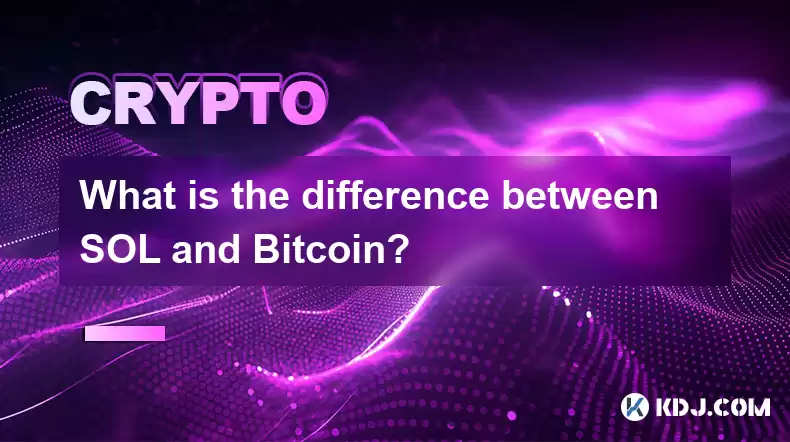
- Different Underlying Technologies: Solana (SOL) utilizes a novel Proof-of-History (PoH) consensus mechanism combined with Proof-of-Stake (PoS), while Bitcoin (BTC) uses a Proof-of-Work (PoW) consensus mechanism. This fundamental difference impacts transaction speeds and energy consumption.
- Scalability and Transaction Speed: Solana boasts significantly higher transaction throughput and lower latency compared to Bitcoin, making it more suitable for decentralized applications (dApps). Bitcoin's transaction processing is comparatively slower.
- Smart Contract Functionality: Solana is a smart contract platform, enabling the creation of decentralized applications (dApps) and decentralized finance (DeFi) protocols. Bitcoin's scripting capabilities are limited, hindering its capacity for complex smart contracts.
- Use Cases: Bitcoin primarily functions as a store of value and a peer-to-peer digital currency. Solana aims to be a more versatile platform supporting a broader range of applications beyond simple transactions.
- Ecosystem and Community: Bitcoin possesses a larger, more established community and ecosystem, providing greater stability and network effect. Solana’s ecosystem is rapidly growing but still comparatively younger.
- Tokenomics and Supply: Bitcoin has a fixed supply of 21 million coins, contributing to its perceived scarcity and value proposition. Solana's tokenomics are different, with a larger and potentially inflationary supply.
Solana (SOL) and Bitcoin (BTC) represent two distinct approaches to cryptocurrency and blockchain technology. While both are cryptocurrencies facilitating digital transactions, their underlying mechanisms, capabilities, and intended use cases differ significantly. Understanding these differences is crucial for informed investment and participation in the crypto space.
Bitcoin, the first and most well-known cryptocurrency, employs a Proof-of-Work (PoW) consensus mechanism. This means miners compete to solve complex cryptographic puzzles to validate transactions and add new blocks to the blockchain. This process is energy-intensive but ensures a high degree of security and decentralization. Bitcoin's primary function is as a decentralized digital currency, acting as a store of value and a medium of exchange.
Solana, on the other hand, utilizes a hybrid consensus mechanism combining Proof-of-History (PoH) and Proof-of-Stake (PoS). PoH creates a verifiable history of events, improving transaction processing speed. PoS allows validators to stake their SOL tokens to secure the network, consuming significantly less energy than PoW. This combination allows Solana to achieve much higher transaction throughput and lower latency than Bitcoin.
The difference in consensus mechanisms directly impacts the scalability of each blockchain. Bitcoin's PoW limits its transaction speed and scalability, resulting in higher transaction fees during periods of high network activity. Solana’s PoH and PoS enable significantly faster transaction processing and higher throughput, making it more suitable for decentralized applications (dApps) and other high-volume use cases.
Furthermore, Solana is a smart contract platform. This means developers can build and deploy decentralized applications (dApps) on its blockchain. This functionality is largely absent in Bitcoin. While Bitcoin has limited scripting capabilities, it lacks the sophisticated smart contract functionality crucial for creating DeFi protocols, NFTs, and other advanced applications. Bitcoin's focus remains primarily on its role as a digital currency.
Solana’s smart contract functionality has fueled the growth of its ecosystem, attracting developers and fostering innovation in decentralized finance (DeFi) and other areas. This contrasts with Bitcoin's relatively simpler ecosystem, primarily focused on trading and holding the cryptocurrency. The rapid growth of Solana's ecosystem, however, also presents challenges in terms of security and network stability, as compared to the mature and well-established Bitcoin ecosystem.
The tokenomics of SOL and BTC also differ substantially. Bitcoin has a fixed maximum supply of 21 million coins, contributing to its scarcity and potential for long-term value appreciation. Solana, however, has a larger and potentially inflationary supply, which could affect its price stability in the long run. The different token distribution mechanisms and emission schedules also play a significant role in their respective market dynamics.
The communities surrounding each cryptocurrency also differ. Bitcoin boasts a large, established community and a long history, providing a strong sense of stability and network effect. Solana's community is significantly younger but is growing rapidly, reflecting the potential of its technology and the dynamism of its ecosystem. This difference in community size and maturity impacts network security, development efforts, and overall market sentiment.
- What are the main differences in the consensus mechanisms of SOL and BTC?
Bitcoin uses Proof-of-Work (PoW), a computationally intensive process requiring significant energy. Solana uses a hybrid of Proof-of-History (PoH) and Proof-of-Stake (PoS), which is much more energy-efficient.
- How do the transaction speeds of SOL and BTC compare?
Solana's transaction speeds are significantly faster than Bitcoin's, capable of handling thousands of transactions per second compared to Bitcoin's few transactions per second.
- Can smart contracts be deployed on both Solana and Bitcoin?
Smart contracts are readily deployable on Solana, enabling the development of dApps. Bitcoin's capabilities in this area are severely limited.
- Which cryptocurrency has a larger and more established community?
Bitcoin has a significantly larger and more established community compared to Solana's rapidly growing but younger community.
- What are the key differences in the tokenomics of SOL and BTC?
Bitcoin has a fixed supply of 21 million coins, while Solana has a larger, potentially inflationary supply. This impacts their long-term price stability and investment potential.
- Which cryptocurrency is better suited for decentralized applications (dApps)?
Solana's architecture and smart contract functionality make it much more suitable for dApps compared to Bitcoin.
- Which cryptocurrency is considered more energy-efficient?
Solana's PoH and PoS consensus mechanism is significantly more energy-efficient than Bitcoin's PoW.
- What are the primary use cases for SOL and BTC?
Bitcoin is primarily used as a store of value and a peer-to-peer digital currency. Solana aims to be a versatile platform supporting dApps and DeFi protocols.
Disclaimer:info@kdj.com
The information provided is not trading advice. kdj.com does not assume any responsibility for any investments made based on the information provided in this article. Cryptocurrencies are highly volatile and it is highly recommended that you invest with caution after thorough research!
If you believe that the content used on this website infringes your copyright, please contact us immediately (info@kdj.com) and we will delete it promptly.
- Binance Fortifies $1 Billion SAFU Reserve with Entirely Bitcoin Holdings, Amidst Market Shifts
- 2026-02-12 19:10:01
- Hong Kong's Crypto Pulse: Bullish Sentiment Defies Market Tremors
- 2026-02-12 19:10:01
- Binance Navigates Narrative Collapse and Panic Amidst Market Turmoil
- 2026-02-12 18:50:01
- Blockchain Calendar 2026: Riyadh Summit Dominates High-Value Events, Cardano Expands Interoperability
- 2026-02-12 19:05:01
- Solana Pivots Strategically Towards Institutional Finance, Shifting Focus from Speculation to Real-World Assets
- 2026-02-12 19:05:01
- Ethereum's Crossroads: Volatility, Liquidity, and the Hunt for Opportunity
- 2026-02-12 19:00:02
Related knowledge
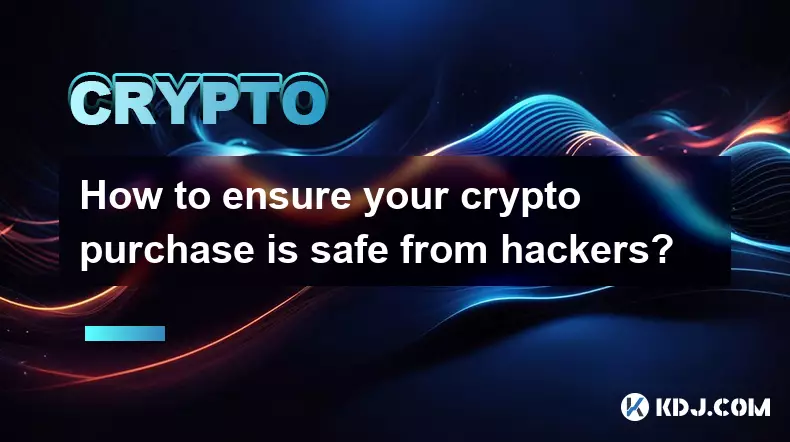
How to ensure your crypto purchase is safe from hackers?
Jan 28,2026 at 11:19pm
Secure Wallet Selection1. Choose hardware wallets for long-term holdings—devices like Ledger and Trezor isolate private keys from internet-connected s...
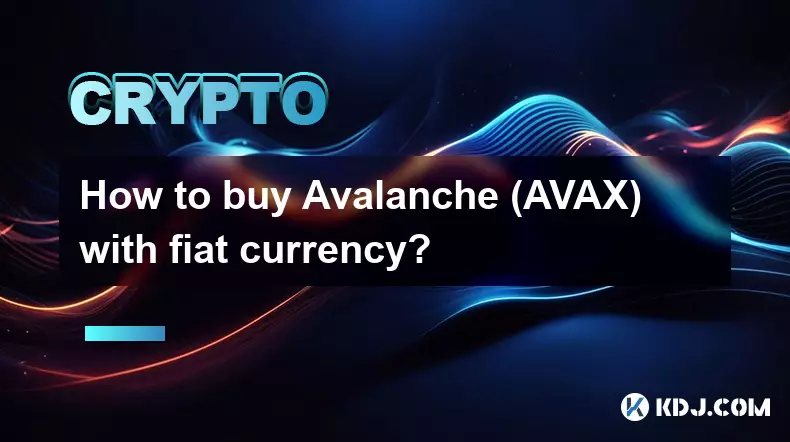
How to buy Avalanche (AVAX) with fiat currency?
Jan 29,2026 at 12:40pm
Choosing a Reliable Exchange Platform1. Identify exchanges licensed in your jurisdiction that support AVAX trading pairs with major fiat currencies li...
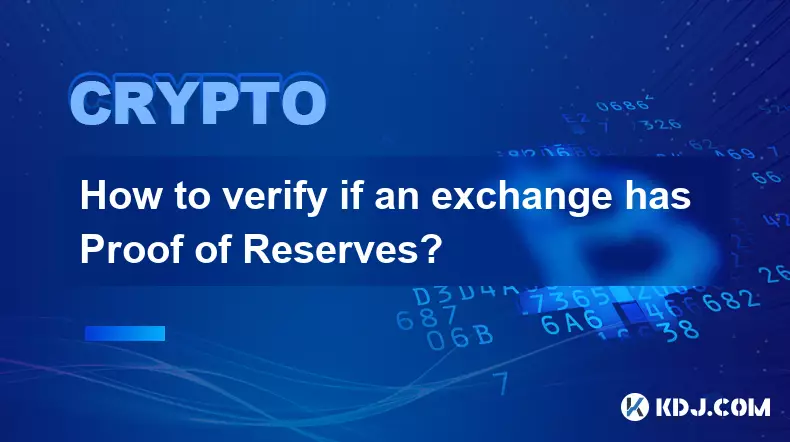
How to verify if an exchange has Proof of Reserves?
Jan 30,2026 at 06:39am
Understanding Proof of Reserves1. Proof of Reserves (PoR) is a cryptographic audit mechanism that demonstrates an exchange holds sufficient on-chain a...
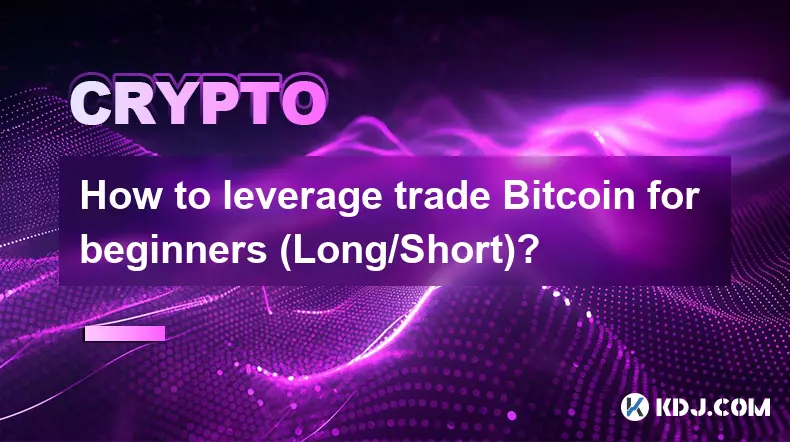
How to leverage trade Bitcoin for beginners (Long/Short)?
Jan 29,2026 at 03:19pm
Understanding Bitcoin Price Movements1. Bitcoin’s price is heavily influenced by macroeconomic indicators such as interest rate decisions, inflation d...
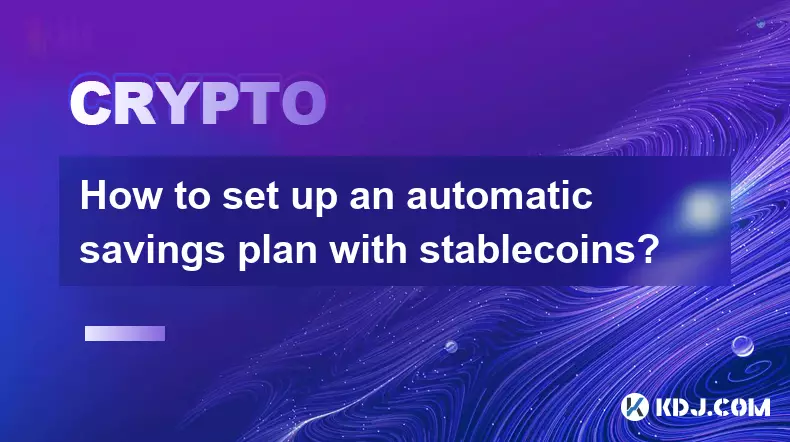
How to set up an automatic savings plan with stablecoins?
Jan 29,2026 at 06:39am
Understanding Stablecoin Savings Mechanics1. Stablecoins are digital assets pegged to fiat currencies like the US dollar, designed to minimize volatil...
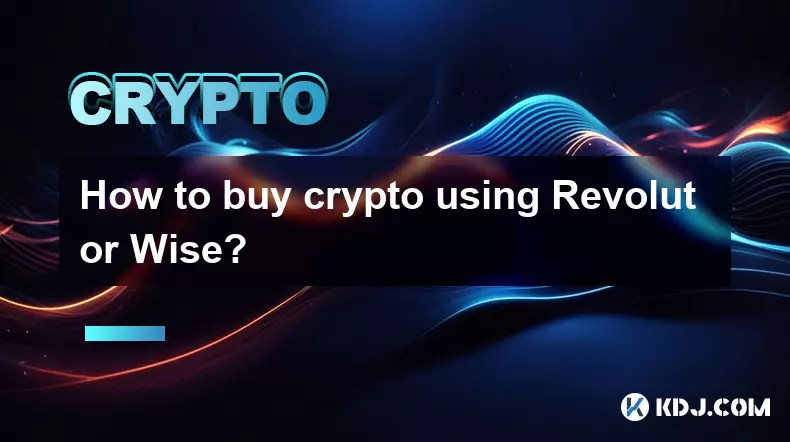
How to buy crypto using Revolut or Wise?
Jan 28,2026 at 11:00pm
Setting Up Your Revolut Account for Crypto Purchases1. Download the Revolut app and complete identity verification using government-issued ID and a se...

How to ensure your crypto purchase is safe from hackers?
Jan 28,2026 at 11:19pm
Secure Wallet Selection1. Choose hardware wallets for long-term holdings—devices like Ledger and Trezor isolate private keys from internet-connected s...

How to buy Avalanche (AVAX) with fiat currency?
Jan 29,2026 at 12:40pm
Choosing a Reliable Exchange Platform1. Identify exchanges licensed in your jurisdiction that support AVAX trading pairs with major fiat currencies li...

How to verify if an exchange has Proof of Reserves?
Jan 30,2026 at 06:39am
Understanding Proof of Reserves1. Proof of Reserves (PoR) is a cryptographic audit mechanism that demonstrates an exchange holds sufficient on-chain a...

How to leverage trade Bitcoin for beginners (Long/Short)?
Jan 29,2026 at 03:19pm
Understanding Bitcoin Price Movements1. Bitcoin’s price is heavily influenced by macroeconomic indicators such as interest rate decisions, inflation d...

How to set up an automatic savings plan with stablecoins?
Jan 29,2026 at 06:39am
Understanding Stablecoin Savings Mechanics1. Stablecoins are digital assets pegged to fiat currencies like the US dollar, designed to minimize volatil...

How to buy crypto using Revolut or Wise?
Jan 28,2026 at 11:00pm
Setting Up Your Revolut Account for Crypto Purchases1. Download the Revolut app and complete identity verification using government-issued ID and a se...
See all articles










































































